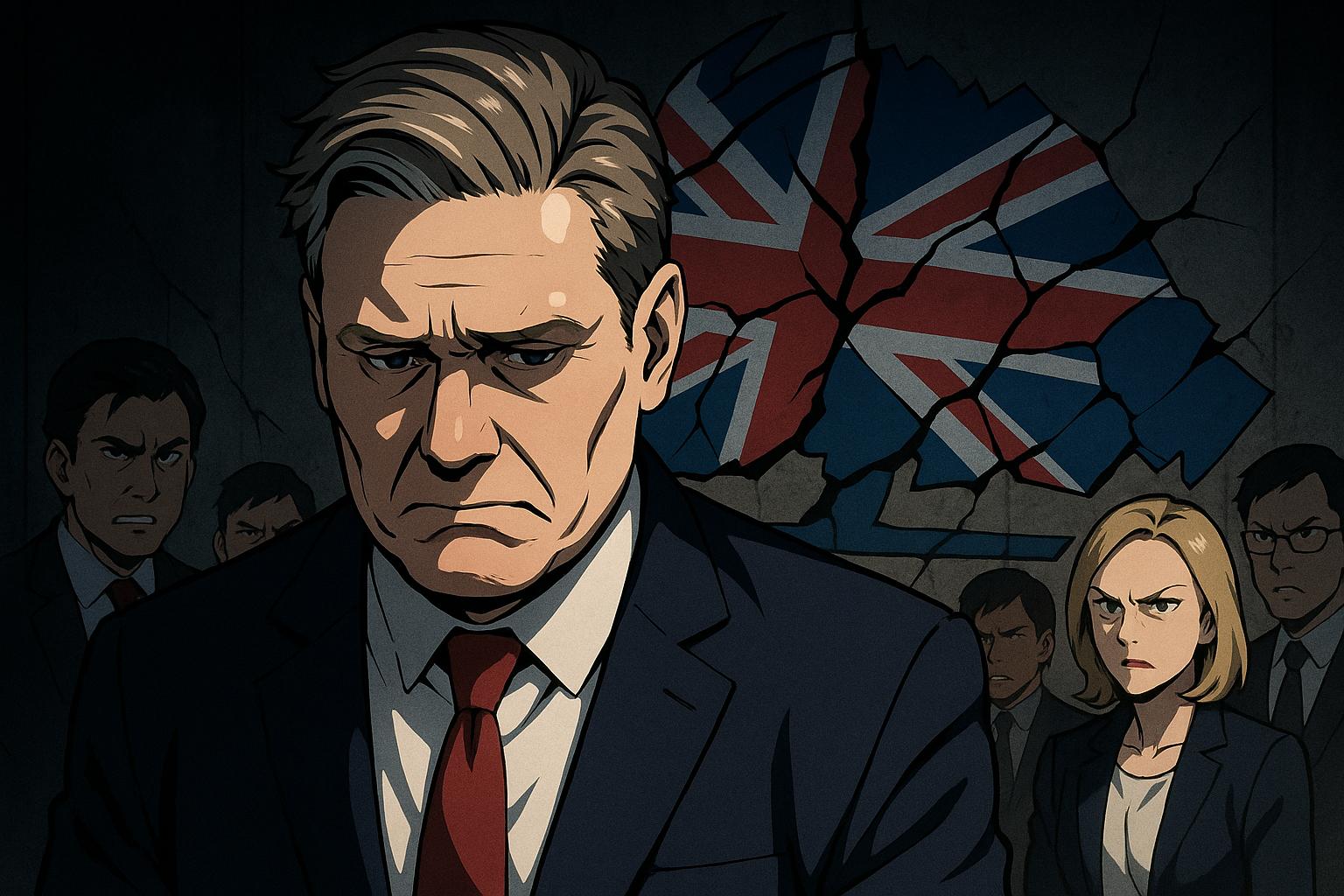The ongoing turmoil within the party signals a troubling reality for those who once believed it could offer a credible challenge to the dominant political narratives in the UK. Former MP Rupert Lowe's recent comments about the party leader have cut to the core of legitimacy in leadership—describing him as a "cult leader" is not merely provocative; it reflects a growing unease among party members who now find themselves questioning the direction of their political home. With whispers of a rival political venture gaining traction, the internal strife only intensifies.
Lowe's explosive accusations followed his suspension from the party, amidst allegations of threatening the chairman—claims he insists are baseless. His intention to present a "satisfactory alternative" to the current leadership underscores a disturbing trend: dissatisfaction with the direction set by Farage, which increasingly resembles a relentless promotional campaign rather than genuine political engagement. "Farage is leading a cult; I might start my own party," he declared, honing in on the frustration boiling over among a significant faction of members who feel sidelined.
Critics have raised alarms over Farage’s management style, with former supporters lamenting a "messianic" approach that lacks accountability and transparency—traits essential for any viable political entity. The recent events, notably Lowe's suspension, have illuminated cracks in the party’s framework, raising concerns about whether it can effectively navigate the current electoral landscape under such leadership.
Adding to this chaotic mix, tech billionaire Elon Musk’s foray into the discourse has put further pressure on Farage. His public endorsement of Lowe seems to suggest that there are alternative pathways for those yearning for credible leadership, reinforcing the belief that Farage's grip on the party might be faltering. With murmurs of rebellion among MPs growing louder, the fear is that the party risks becoming an irrelevance if it does not undertake substantial reforms.
The acrimonious atmosphere surrounding the party is palpable, particularly following Lowe's assertions of being targeted in a calculated effort to silence dissent. The decision to involve law enforcement has only heightened suspicions of a power struggle that is seemingly distracting from the pressing issues facing constituents. The message is clear: internal conflicts are threatening to undermine any remaining credibility.
With no charges forthcoming from the Crown Prosecution Service, Lowe has latched onto this moment, encouraging voters disillusioned with the current leadership to seek alternatives. This pivot showcases a mounting desire for change and suggests that substantial portions of leadership may soon pivot towards a new political entity, one that could reinvigorate the right-wing cause and directly challenge the new Labour government’s agenda.
In this knot of rivalry and dissatisfaction, the future of the party appears increasingly precarious. The escalating feud between Farage and Lowe raises crucial questions: Can the party adapt in a political environment now dominated by a Labour government? Will Lowe’s potential new venture galvanize voters seeking reliable representation? As these dynamics unfold, anticipation mounts regarding the direction this party will take and whether it can still embody the essence of right-wing values in the face of overwhelming pressure.
Source: Noah Wire Services
